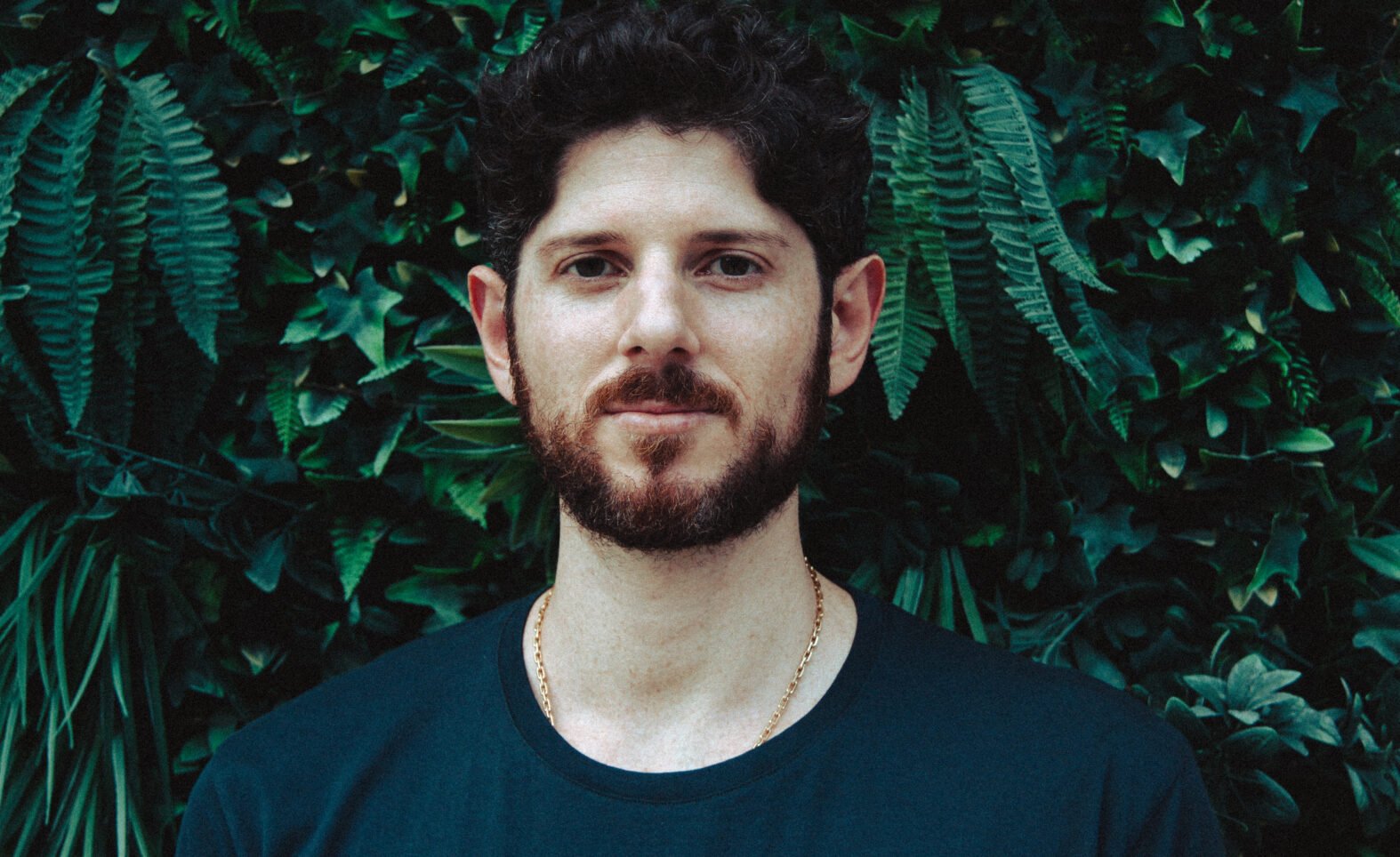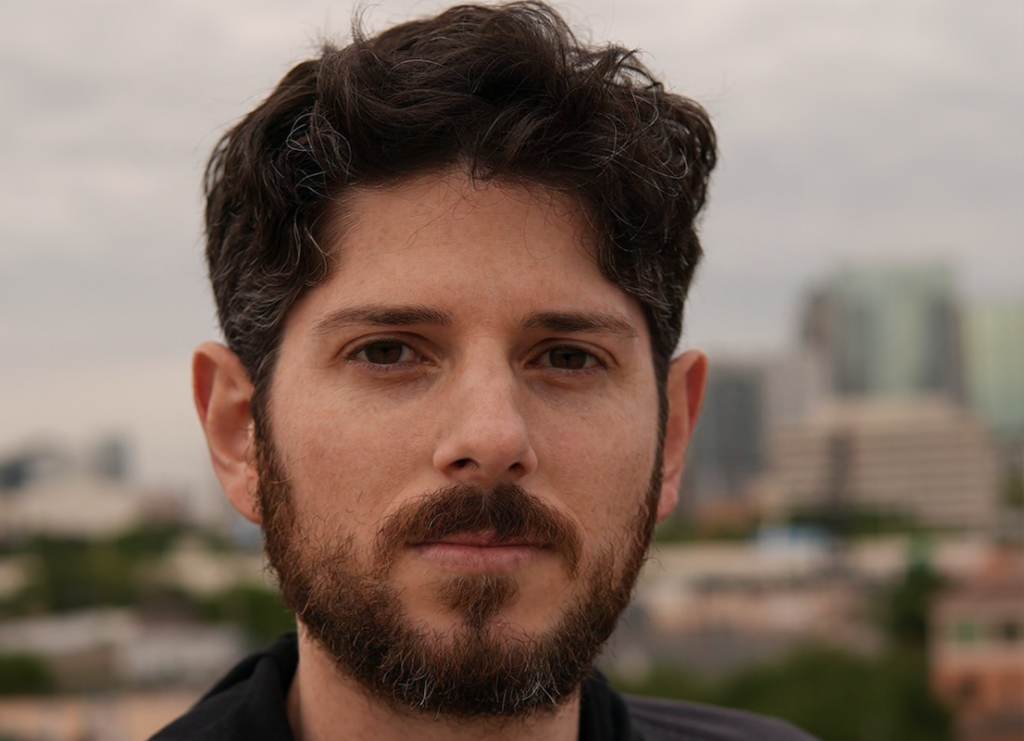IZIDOR – A Tender Glimpse into a Hidden Past.
In just under thirty minutes, IZIDOR manages to stir the soul, ...

Gabriel Mayo’s journey into filmmaking is one marked by passion, adaptability, and an unyielding drive to tell stories. From initially pursuing a career in music to making a splash with his directorial debut, “A Weird Kind of Beautiful”.
His evolution as a filmmaker shows how deeply committed he is to the craft.
In this interview, Gabriel shares insights into his creative process, the challenges he faced during production, and the invaluable lessons he learned along the way. He offers us an exclusive glimpse into the mind of a filmmaker who is determined to carve his path in this ever-evolving industry.
Gabriel – Yeah. I got into film right at the end of high school. Initially I wanted to pursue a career in music, but over time I realized I wanted to make movies and have been doing that ever since. I studied film and creative and writing and made short films, moved to LA and followed the same path many others do. I worked mostly as a video editor, but also interned as a reader for a production company and worked as a writer. During the pandemic I decided to direct a script of mine and wrote A Weird Kind of Beautiful.
Gabriel – I would say it’s more relaxed and hotter. Especially shooting outdoors, it’s very tough. Other than that, the crews in LA have more experience given that there’s a lot more work. Going to Miami didn’t really affect my work as I was a freelancer and worked remotely most of the time.
Gabriel – There wasn’t an initial inspiration that impelled me to write the movie. I wanted to make a movie and my starting point was how can I logistically and financially make that possible. Once I realized I could make a movie with a few characters in one location, I began to think of ideas. To be honest there wasn’t a thing I was specifically trying to communicate. But once I had a few different ideas and began to write the script the themes just seeped into the story and I believe that’s because I’d gone back to Miami after many years, during lockdown, during a moment of social isolation, and those themes were simply percolating in my head: going back to a place where I used to have a life, friends, etc, but not really connected to anyone, and wondering where all that had gone.
Gabriel – As a writer I had spent ten years writing almost every day of my life. And writing dialogue is something I love. So I knew I could write something for a few actors in one location and was confident in my skills. It did force me to focus more on directing actors. And the editor in me knew what I needed to get, what kind of coverage, how much, etc… But honestly, I was more so thinking as a director when it came to directing and my experience making short films and directing actors.
Gabriel – Very. I edited the film myself with my co-editor, Mauricio. He did a cut himself, I did my own cut, and then we sat down and looked at both. I had to do my own cut because I had the movie in my head and knew which performances were the ones that were going to make the movie better. Mauricio was very helpful, his cut offered many solutions to many problems I encountered. We then sat down together and used mine as a base but took a lot from his and then had to change things where neither cut was the best or simply taking what either one of us had done no longer worked in a new context, so we had to rethink how to edit different parts. And then once that was over I had to oversee the rest of post as well.

Gabriel – I don’t really know how to answer that except to say that I go by feel. I don’t have a process or anything, I just know what the tone of the film is by the time I sit down to write it and just know what’s appropriate or not. Sometimes I overdo it in a certain direction, but catch it while rereading or during rewrites, so then you edit. But it’s not a conscious equation that I have to solve because if I know the characters really well and I know what the movie is, I just follow the characters, and they take me wherever they want to go. And if they take me there, I accept it, it’s part of the movie and within tone.
Gabriel – Yes. Thank you for pointing that out because this was one of the most important elements of this movie. My approach was to have very different characters, even if they’ve been friends their whole lives – and not necessarily different just for its own sake, but you want to know who these people are, what makes them unique for purposes of characterization, and, you also want to know where they come from and how they think and how their past influences who they are in the present, precisely so you can create tension and drama. You want things to be dramatic, it’s what makes it interesting to watch and reveals who people really are under pressure. So there were decisions I made about these characters, which I knew would give me material to create drama. I don’t want to reveal too much, but coming up with the fact that Bea and Eric dated became very important. The fact that Eric is now engaged to the daughter of his employer is very important, it adds stakes. Or that Ivan doesn’t know anything about what happened in the past so we have a character invested in knowing and doing us the favor of asking those questions we want answered. But it also helps that one of the characteristics of Ivan is he that actually cares about his friends, which can’t be said of everyone. I could keep going, all of their traits and histories are important. One way of thinking about it is to ask yourself who are the characters, what do they want and what are the obstacles in their way, and then you can work your way backwards and give them traits and a history that aid in creating drama.
Gabriel – The hardest thing about the one location setting is the amount of dialogue the actors have to learn and know like the back of their hand, blocking the movie in a way that helps you tell the story, but also feels organic to the characters – you don’t want the actors sitting around a table for ninety minutes. And the third is how to shoot it, how do you make it visually interesting and what do you focus on. All of these together were very challenging, but I knew what we were getting into and we had to do a lot of prep for it.
Gabriel – Our biggest problem was the rain. We decided to shoot in mid-November when it is no longer rain season, but apparently that year it was an extended rain season. It affected our rehearsals on location and we had to push production a couple of days because of a tropical storm. Then once we started shooting we’d still get showers on and off. One night it started to rain suddenly and we had lights on the roof that blew up and didn’t turn on afterwards. We’d only been shooting for a few hours and couldn’t shoot for the rest of the night. The following morning we had to go rent new ones. It really made things difficult as we ran out of time to get everything we needed.
Gabriel – We haven’t really shown it yet to a wide crowd, only to some close friends for feedback and a few other people so it’s hard to say. Most people are hooked a few minutes in and can’t really stop themselves from watching it until it’s over.
Gabriel – I don’t want to impose anything specific on the audience. I hope for it to be the kind of movie that people walk away from thinking about their own lives and friendships, but the movie has different points of view and I know people are gonna come away from it thinking different things.
Gabriel – I learned a ton about how to shoot something in a small space. Given that I was forced to in this situation, there were many times throughout the shoot where I thought, oh I could’ve done this, I could’ve done that, I just didn’t have much time to try things out. You have to constantly think how to do something you’ve already done but in a different way, so I was forced to come up with different way to solve that problem. I think I will take that with me into my future projects.
Gabriel – Collaboration is important for the success of any film, not just this one. Filmmaking is collaboration. Even if you wear many hats, like I did in this movie, you still have to collaborate with many other creative individuals. So it’s not just important, it’s intrinsic to filmmaking itself. It would’ve been impossible to make this movie without the input of the actors, of the crew, of everyone involved.
Gabriel – I would say go and do it, don’t ask for permission. Making a movie is how you learn, but also it shows the world your voice and who you are. I would suggest learning how to write well and write many scripts before you go off and make a feature because you might not get another chance at making one. Writing is free. It does require time, but it doesn’t cost any money so you can do it for many years and get better at it until you feel like you know what you’re doing, or have a good story. Writing something that you can make for cheap with the resources that you have is the way to go and the way so many directors have gotten their start.

In Conversation With Reina K., brings to you the kind of scoop that gives you a real insight into the mind, drive and craft of filmmakers from across the world.
Leave A Reply